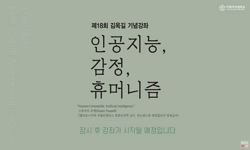With the economic development, social progress, modern travel business increased, the hotel experience culture oriented to the taste of staying is constantly updated and upgraded, in a sense, a history of accommodation change is a history of hotel cha...
http://chineseinput.net/에서 pinyin(병음)방식으로 중국어를 변환할 수 있습니다.
변환된 중국어를 복사하여 사용하시면 됩니다.
- 中文 을 입력하시려면 zhongwen을 입력하시고 space를누르시면됩니다.
- 北京 을 입력하시려면 beijing을 입력하시고 space를 누르시면 됩니다.
중국 스마트 호텔의 이용의도에 관한 연구: TAM모형을 적용하여 = A study on the intention to use smart hotels in China: Applying the TAM model
한글로보기https://www.riss.kr/link?id=T17089985
- 저자
-
발행사항
청주 : 충북대학교 일반대학원, 2024
-
학위논문사항
학위논문(석사) -- 충북대학교 일반대학원 , 국제경영학과(원) 국제경영학 , 2024. 8
-
발행연도
2024
-
작성언어
한국어
- 주제어
-
발행국(도시)
충청북도
-
형태사항
82 ; 26 cm
-
일반주기명
지도교수: 鄭珍變
-
UCI식별코드
I804:null-200000810238
- 소장기관
-
0
상세조회 -
0
다운로드
부가정보
다국어 초록 (Multilingual Abstract)
With the economic development, social progress, modern travel business increased, the hotel experience culture oriented to the taste of staying is constantly updated and upgraded, in a sense, a history of accommodation change is a history of hotel change. Modern technology development and lifestyle changes, intelligent design began to become part of people's lives, and intelligent space experience fun began to be used by modern hotels and into the lives of the majority of business travelers. Based on previous research on the attribute factors of smart hotels, this study was conducted with the purpose of examining the impact of these factors on Chinese consumers' intention to use smart hotels. Referring to various discussions in the theoretical background, a research model was designed for the influence relationship between the independent variables (selection attributes of smart hotels), mediators (perceived usefulness, attitude), and dependent variables (intention of use) of this study. This study reveals that Smart hotel managers should focus on providing and promoting the practicality of smart facilities and services to consumers. Because consumers prefer hotel intelligent facilities and software that save time, have a sense of control, are convenient, comfortable, enhance experience, and fast. The development and promotion of smart hotels has become an important breakthrough for hotels to lead consumer experience, systematizing the entire hotel's services through smart technology and information equipment. This study provides important inspiration for the business strategy and marketing of China's smart hotel industry.
목차 (Table of Contents)
- I. 서 론 1
- 제1절 연구의 배경 및 목적 1
- 제2절 연구 방법 및 범위 5
- 제3절 논문의 구성 6
- Ⅱ. 이론적 배경 6
- I. 서 론 1
- 제1절 연구의 배경 및 목적 1
- 제2절 연구 방법 및 범위 5
- 제3절 논문의 구성 6
- Ⅱ. 이론적 배경 6
- 제1절 스마트 호텔 6
- 제2절 호텔 디지털 전환 12
- 제3절 기술 수용 모형 15
- 제4절 호텔 선택속성 17
- 제5절 이용의도 24
- Ⅲ. 연구의 설계 26
- 제1절 연구모형 26
- 제2절 가설설정 27
- 제3절 변수의 조작적 정의 및 측정 32
- 제4절 자료의 수집 및 분석 방법 38
- IV. 실증분석 38
- 1. 인구통계학적 분석 38
- 2. 확인적 요인분석 40
- 3. 내적일관성(Internal Consistency) 및 집중타당성(Convergent Validity) 검증 41
- 4. 판별타당성(Fornell-Larckercriterion) 43
- 5. 가설 검증 결과 45
- 매개효과 검증결과 46
- 6. 인구통계학적 특성에 따른 차이분석 48
- V. 결론 49
- 1. 연구결과 요약 49
- 2. 연구의 시사점 52
- 3. 연구의 한계점 및 제안점 55
- 참고문헌 57
- 설문지 67












